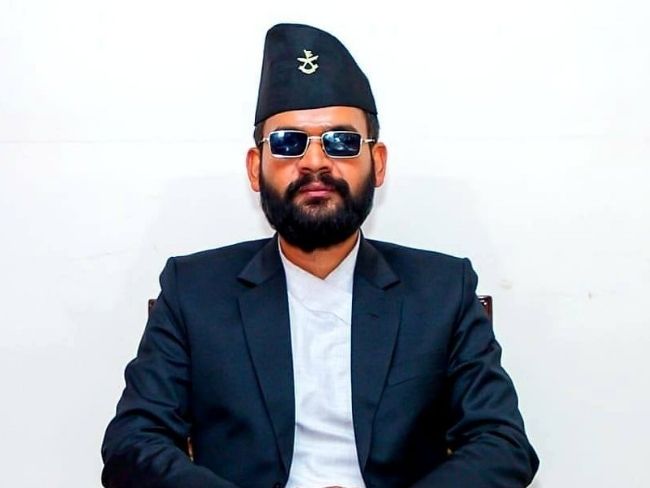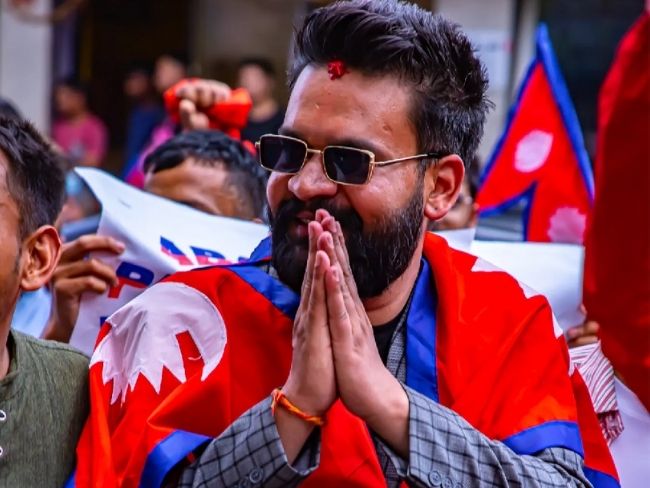Ten years ago, it was hard to imagine a rapper becoming the mayor of Kathmandu. However, Balen Shah,known simply as Balen,surprised the entire country when he won the mayoral election in May 2022. Since then, he has gone from performing in rap battles to running Nepal’s capital city. He has taken on big challenges like garbage management, traffic problems, protecting cultural heritage, and improving public services. Because of his bold actions and focus on youth-led change, many people have become his strong supporters. At the same time, he has also faced sharp criticism from others.
QUICK FACTS
- Full Name: Balendra Shah (nickname: Balen)
- Born: April 27, 1990, Naradevi, Kathmandu
- Education:
– B.E. in Civil Engineering, White House (Himalayan Whitehouse Int’l College)
– M.Tech in Structural Engineering, VTU India - Profession Before Politics: Structural engineer, music composer, rapper
- Marital Status: Married to Sabina Kafle (2018); welcomed a daughter in 2023.
- Mayor Since: May 30, 2022, 15th and first independent mayor of Kathmandu
From Hip-Hop to Hero (2010–2021)
Balen’s journey started with hip-hop. He grew up in Naradevi and loved poetry and music. When he was in ninth grade, he wrote his first song, Sadak Balak, and released it in 2012. Then, a year later, he became famous through Raw Barz, a YouTube rap battle show, and even worked as a judge on Nephopko Shreepech.
Also, his rap was more than just music. His lyrics talked about social problems, corruption, and everyday struggles in Nepal. At the same time, he worked as a structural engineer and helped rebuild after the 2015 earthquake.
Taking the Political Mic (2022 Campaign)
Balen had shown interest in politics before, but in December 2021, he officially announced his candidacy for mayor of Kathmandu as an independent. He ran with the slogan “Work over words,” focusing on real action rather than empty promises.
He promised to
- Keep streets clean and sidewalks open
- Improve waste management
- Fight corruption and use digital tools for better governance
- Protect Kathmandu’s cultural heritage
Since he didn’t have the support of a major political party, he relied on a tech-savvy, youth-driven campaign. As a result, many young people and first-time voters connected with his message.
In the end, the voters responded strongly—he won with about 38.6% of the vote (over 60,000 votes), beating candidates from both the Nepali Congress and CPN-UML parties.

From Promises to Projects: What He’s Done
1. Garbage & Cleaning Up
One of his first moves was to tackle Kathmandu’s longstanding waste crisis. He reopened landfills, scheduled regular garbage pickups, and contracted private companies to help. Piles of trash in central streets have significantly reduced.
2. Reclaiming Sidewalks & Public Spaces
Illegal structures lining footpaths were bulldozed to open walking spaces. Vendors displaced by these demolitions criticized him, but the sidewalks are now much more walkable.
3. Demolition Drive
Balen didn’t shy away from controversial demolitions; this included illegal extensions to malls, riverbank encroachments, and even unauthorized police substations.
4. Digital Governance & Transparency
- Introduced live telecasts of municipal meetings, an unprecedented move.
- Launched the Hello Mayor app for reporting civic issues.
- Digitized payments, online permits, and digital signatures to cut red tape and curb corruption.
5. Heritage & Environment
- Restoration projects like Ikha Pokhari (ancient pond), dhunge dharas, and falchas (traditional resting spots) are underway.
- Cracked down on oversized hoardings to tidy up the cityscape and raise ad placement revenues.
6. Public Safety & Traffic
- Installed fire hydrants across wards, improving fire response readiness.
- Enforced stricter parking rules, better organized Gongabu Bus Park as a transport hub, and reorganized street parking.
7. Education & Skill Building
- Launched “Textbook-Free Fridays” in public schools to encourage creative learning.
- Organized the first and second annual Skill Fairs (May 2024 & 2025), which trained thousands in market-relevant trades; half the trainees went on to secure jobs or start businesses.
8. Legal & Health Services
- Set up free legal aid desks in every ward; 2,800+ helped in the first month.
- Closed illegal health facilities and placed doctors and nurses in all 32 wards.
9. Environmental Regulation
- Banned plastic bags under 40 microns, pushing businesses toward reusable alternatives.
- Cleaned up tangled wires across Kathmandu’s streets.
Tensions & Criticisms
- Street vendor protests: When Balen removed street stalls, many vendors protested. Human Rights Watch called the actions too harsh, and some activists went on hunger strikes. Later, a deal was made so some vendors could return with permits.
- Ward committee issue: In June 2025, Balen removed several local leaders from committee roles without asking them first. After backlash, he had to reverse the decision.
- Kathmandu Tower case: Balen stopped the Chief Administrative Officer from working, accusing them of corruption in approving tower designs. This led to legal battles in early 2025.
Why Balen Matters
At age 35, the rap‑engineer‑turned‑mayor symbolizes a new era of politics in Nepal:
- Youth-focused leadership: Balen uses technology, open communication, and active work to show a new way of leading cities.
- Independent politics: He won the election without support from big political parties, proving that anyone can lead if people believe in them.
- Cultural revival: By restoring old sites and encouraging pride in the city, he’s helping Kathmandu connect with its roots again.
Internationally, he earned a spot in TIME 100 Next (2023) and is often hailed as Nepal’s youth icon.
What’s Next?
Balen hasn’t said whether he’ll run again or form a political party. His team is discussing his next move. Urban activists and citizens alike are watching to see if he can keep up the momentum and avoid the pitfalls of rapid reform.
Conclusion
Balen Shah’s journey from rap battles in Naradevi to becoming the mayor of Kathmandu is more than just an inspiring story. It shows how strong, independent leadership can bring real change. He has used digital tools, added green spaces, restored old heritage sites, and involved people more in city matters.
Of course, there have been challenges and protests along the way. But many people agree—he has brought back a sense of pride in the city.
Whether you support his bold moves or think he’s going too fast, one thing is clear: Nepal’s future leaders could come from anywhere, even from the streets or a rap stage.
You May Also Like:





Comments are closed